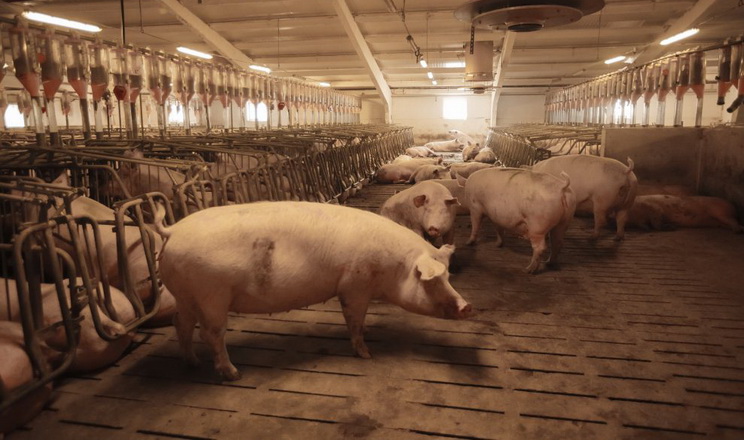EU Commission supports pigmeat sector’s move to more sustainable production

The European Pigmeat Reflection Group delivered its final report to the European Commission on 18 January 2023, ten months after its first kick-off meeting on 10 March 2022. At a recent agricultural Council meeting, Commissioner for Agriculture, Janusz Wojciechowski, acknowledged the group’s work and presented the Commission’s response to the report’s recommendations. Moving towards more sustainable, environmentally and animal-friendly systems of pig production should be a priority for the sector.
At the time of its launch in March 2022, the pigmeat sector had been facing serious difficulties for several months due to the combination of a number of negative factors, including sanitary restrictions in the context of COVID-19, slowdown of exports to China, further spread of African swine fever, and increases in input costs. The way forward required in-depth reflection, as prevailing difficulties went beyond the expected seasonal fluctuations.
The report contains 26 recommendations covering socio-economics, environmental and climate challenges, as well as animal welfare, research and innovation. While most of the recommendations target Member States and stakeholders, several of them are addressed to the Commission. This is the case for organic farming, producers’ organisations, feed and protein sources, and the promotion of EU quality and production standards, for example.
In his address to ministers of agriculture, Commissioner Wojciechowski recalled the following points:
Animal welfare: €7 billion will be dedicated to improving animal welfare and health in the CAP Strategic Plans. The Commission is also currently reviewing the animal welfare legislation.
Promoting organic farming and sustainable production: the Commission presented in April 2021 a comprehensive action plan for the development of organic production in the EU. In addition to the specific actions outlined in the action plan, the Commission will allocate €28 million in 2023 to promotion campaigns stimulating demand for organic products. An additional €36 million will support the promotion of sustainable agriculture practices beneficial for the climate, the environment and animal welfare and the consumption of sustainably produced agri-food products.
Sector’s dependency on imported feed: the Commission will also present in a year’s time an EU approach to proteins.
Research and innovation: Horizon Europe will invest about €9 billion of EU funds to support research and innovation in the fields of “food, bioeconomy, natural resource, agriculture and environment”, with one third of this budget earmarked specifically for agriculture. In 2023-2024, €2 billion are already foreseen for different calls. Additional funds are also set aside for research projects developing pilot vaccines against the African swine fever, that has greatly impacted the sector. In general, the Commission also promotes cross-sectoral cooperation and the involvement of farmers, advisors and other actors in research projects, notably via the Agricultural Knowledge and Innovation System (AKIS).
A wide range of tools are also available in the CAP Strategic Plans to support the sector to reduce greenhouse gas emissions, improve feed and manure management, and invest in renewable energies, like biogas. The Commission also encourages Member States to follow the Group’s recommendations on agricultural risk management strategies and tools.
Read also
Wheat in Southern Brazil Impacted by Dry Weather and Frosts
Oilseed Industry. Leaders and Strategies in the Times of a Great Change
Black Sea & Danube Region: Oilseed and Vegoil Markets Within Ongoing Transfor...
Serbia. The drought will cause extremely high losses for farmers this year
2023/24 Safrinha Corn in Brazil 91% Harvested
Write to us
Our manager will contact you soon



